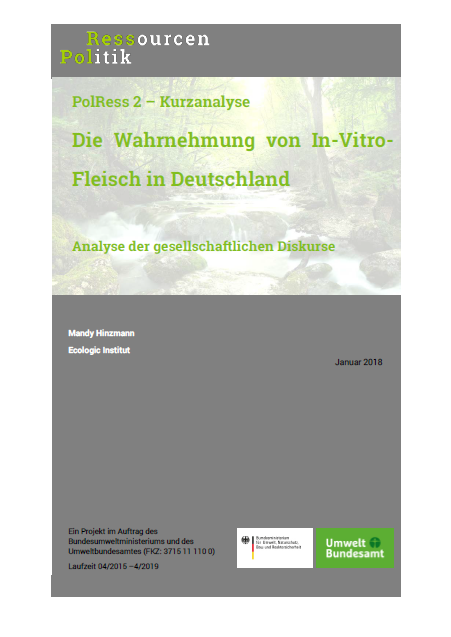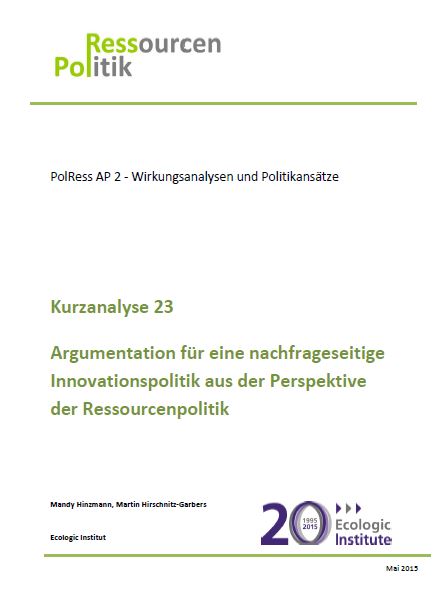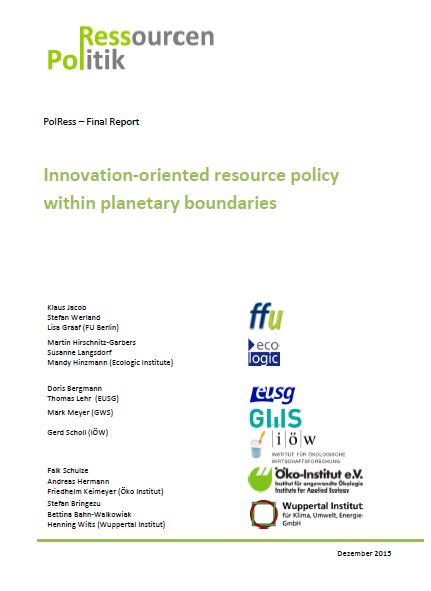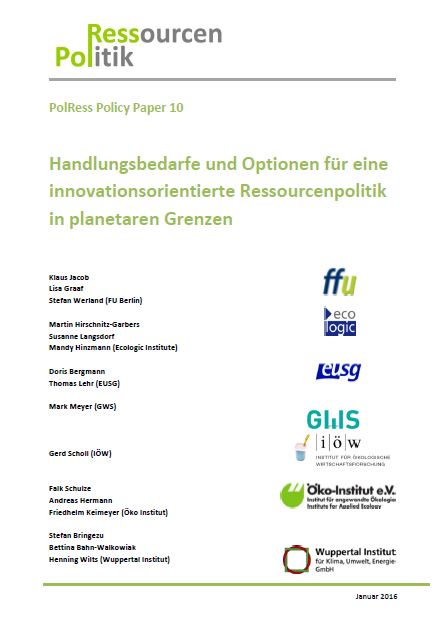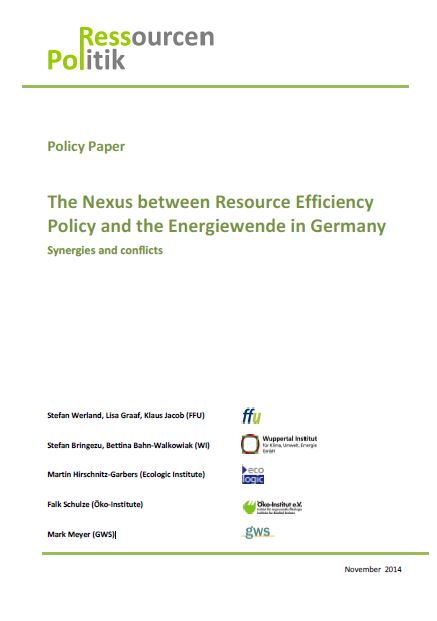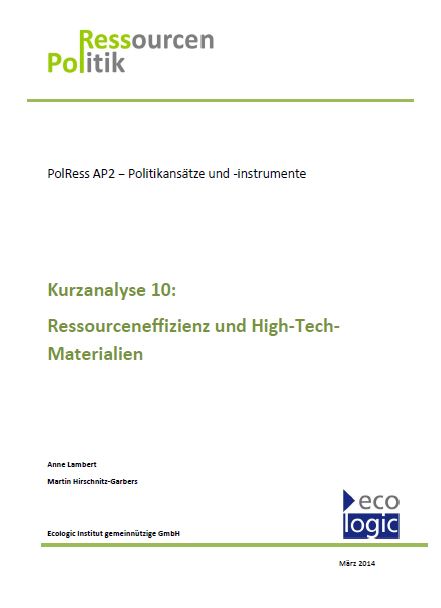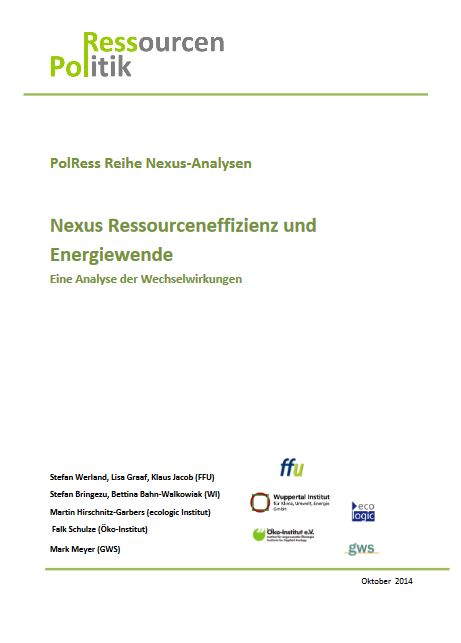Parliamentary Breakfast "Key Questions of German Resource Policy in the Next Legislative Period"
- Event
- Date
-
- Location
- Berlin, Germany
- Speaker
-
Dr. Martin Hirschnitz-Garbers
On 27 June 2013, a parliamentary breakfast was held in Berlin to discuss key questions of German resource policy in the next legislative period. In order to allow for an exchange between policy, academia and business, the Resource Policy research project (PolRess) invited members of the German parliament and resource policy experts to a debate. The event was moderated by Dr. Martin Hirschnitz-Garbers.
A brief paper providing a scientific perspective (German) was prepared as input to the event. It derives key questions from latest scientific findings and processes.
To trigger the debate, two preparatory presentations (German) were held by Prof. Dr. Uwe Schneidewind (President of the Wuppertal Institute for Climate, Environment and Energy) and Prof. Dr. Martin Jänicke (Prof. Emeritus at Free University Berlin und founding director of the Environmental Policy Research Centre). The two researchers pointed out that
- the existence of planetary boundaries for resource use is acknowledged across political parties and requires political action;
- it is necessary to foster a joint debate on resource policy targets across a variety of actors;
- this debate should take into account the need of decoupling economic growth from resource use and environmental impacts;
- a multitude of effective policy instruments already exists to successfully implement resource policy;
- and that joint action will enable both to exploit economic potentials and to help Germany achieve a leading political and economic role within Europe.
In the ensuing discussions, participants highlighted the need for German resource policy to be embedded in the European and international context in order to consider international value-added chains and competition. This embedding would then require a participatory discourse and procedure to develop joint visions and targets for resource policy. Although quantitative targets must play an important role here, qualitative targets should complement the set of targets in joint resource policy discussions. This could help in particular small- and medium-sized enterprises (SMEs), because SMEs often lack the personnel and financial resources to easily match additional legal standards and norms.
In conclusion, the exchange between policy, academia and business during the event was considered
- to have identified relevant questions for German resource policy in the next legislative period,
- to be a prelude to further discussions and to jointly shape and implement resource policy.




